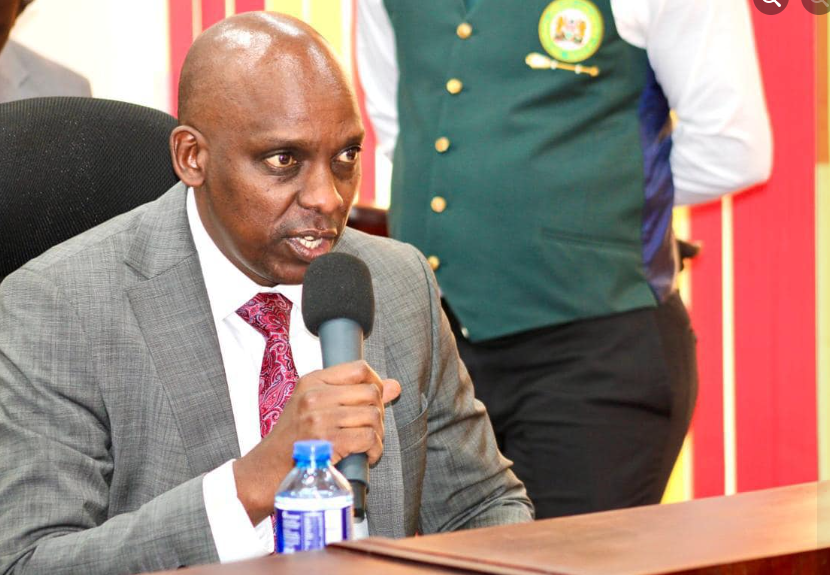KRA betting tax collection lower than anticipated

Even as President William Ruto urged the Central Bank of Kenya to ensure gamblers pay more taxes, it has emerged that licensing issues had a fiscal damaging impact on Kenya Revenue Authority’s (KRA) hunt for gamblers’ billions– reporting less tax revenue from betting than expected.
Aggregated figures from the tax agency show that actual receipts from betting taxes for the year ended June 2022, stood at just Sh3.4 billion against Sh5.4 billion the National Treasury had set for KRA to raise from such levies.
This is after the Treasury originally set a Sh4.2 billion income target for collection by the taxman from gaming and betting firms before reviewing the estimates to Sh1.2 billion for the period owing to licensing requirements by the regulator.
Impact of Covid-19
The impact of Covid-19 which saw certain firms either shift base or close shop, as well as the long-drawn-out court fight between KRA and betting company, Sportpesa, meant that auditors at Times Tower managed just 63 per cent in tax target, lower than the 148 per cent target they achieved in a similar period last year.
In the year ended June 2021, KRA raised Sh2.9 billion from betting taxes against a target revision of Sh2.02 billion, which is lower than the Sh3.7 billion the Treasury had originally hoped would accrue from such payments.
Betting tax is charged at the rate of 15 per cent of the revenue generated from betting. The betting and gaming companies were required to deduct 20 per cent tax from the winnings of the punters and remit this to the taxman.
Similarly, Kenya last year reintroduced excise duty on betting stakes to 7.5 per cent, which means the government first takes Sh7.50 for every Sh100 a gambler places as a bet irrespective of winnings.
It also takes 20 per cent on winnings and levies additional taxes on the betting firms in efforts meant to make gambling unattractive. Some of those tax sets had been opposed by the likes of Captain Ronald Karauri, the CEO of Sportpesa, now operated by Milestone Games.
The list of betting firms licensed for the year ending June published by the Betting and Licensing Control Board (BCLB) shows the number had increased to 100 from 76 in a similar period a year earlier, reflecting a 31.5 per cent growth.
Grown popular
Each year, Kenyan punters lose hundreds of billions of shillings to the gambling industry, underlining the money-spinning national love affair that has grown popular among males aged between 25 and 34 years.
In fact, data by US research firm Geopoll, conducted in 2019, found that out of those aged 18 years and above, 57 per cent have participated in gambling in the past, including 69 per cent who were males while 44 percent were females.
Of those who gamble, the report, undertaken in partnership with a Paris-based multinational market research and consulting firm Ipsos, found that 47 per cent are “light” gamblers who place bets at least once a month or less, and only 10 per cent of gamblers place bets more than once each day.
Yet, despite the regulations put in place by the industry regulator, these operators have somewhat escaped scrutiny and are not rendering unto Caesar the corresponding shares that are Caesar’s.
So much so that President Ruto on Wednesday accused online betting companies for operating in a space that is opaque.
“I am happy that the governor is bringing our online betting companies into the regulation space because we also want them to pay taxes. They are operating in an opaque space,” stated Ruto last week, directing the CBK to moderate such companies to pay their share of taxes.
His remarks are set to open a can of worms on the thorny debate touching on the exact amount sports betting companies such as Betika, Sportpesa, Mozzart bet and others remit to the Kenya Revenue Authority (KRA).
There have been concerns that most of such companies are not declaring “accurate” or “honest” amounts to the exchequer, commensurate with what they actually raise in returns.
Betting companies
From brain hacks to dark nudges and near misses – betting companies in Kenya have over the years employed an arsenal of clever tricks to tempt punters into spending more money – and a good number have willingly taken the bait – a practice that fast-gained prominence in around 2014 when the market leader SportPesa launched in Kenya.
The 2019 Geopoll study finds that gambling is most popular among males aged 25-34, of whom 77 per cent have gambled in the past, with 58 per cent of this group gambling at least once a week.
Females aged over 35 years are the least likely participants in gambling. Only 46 per cent of this population have ever gambled.















